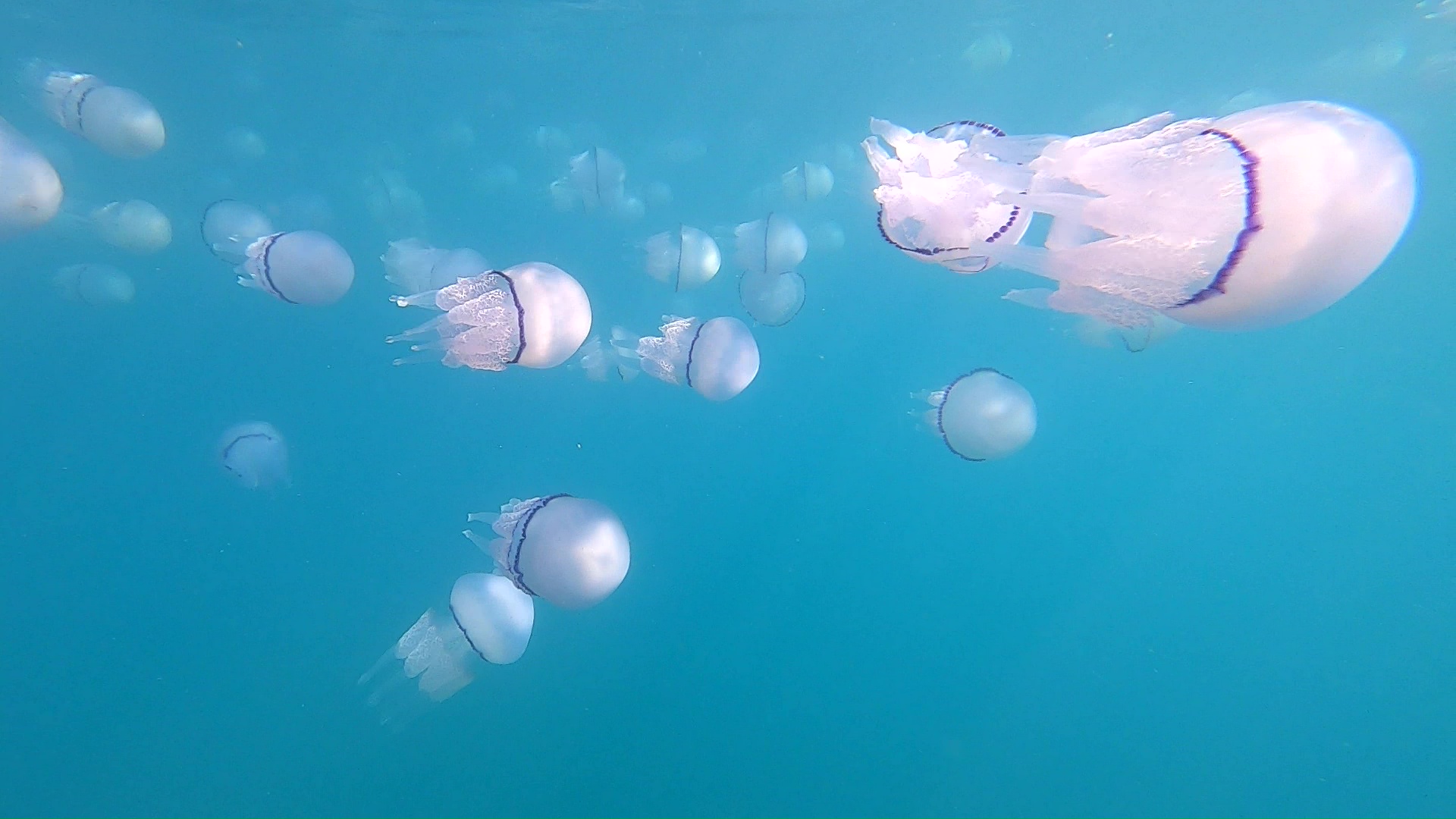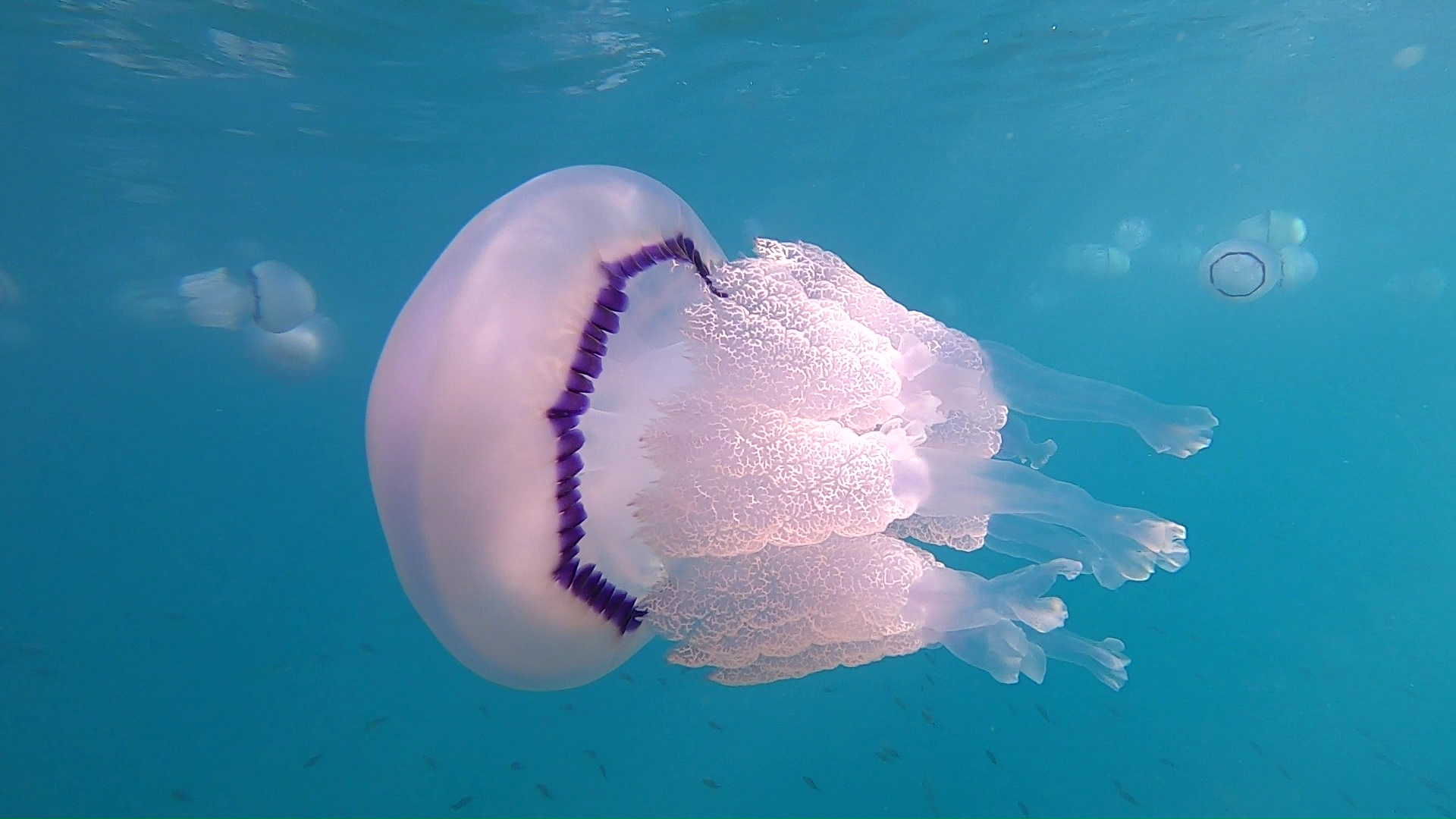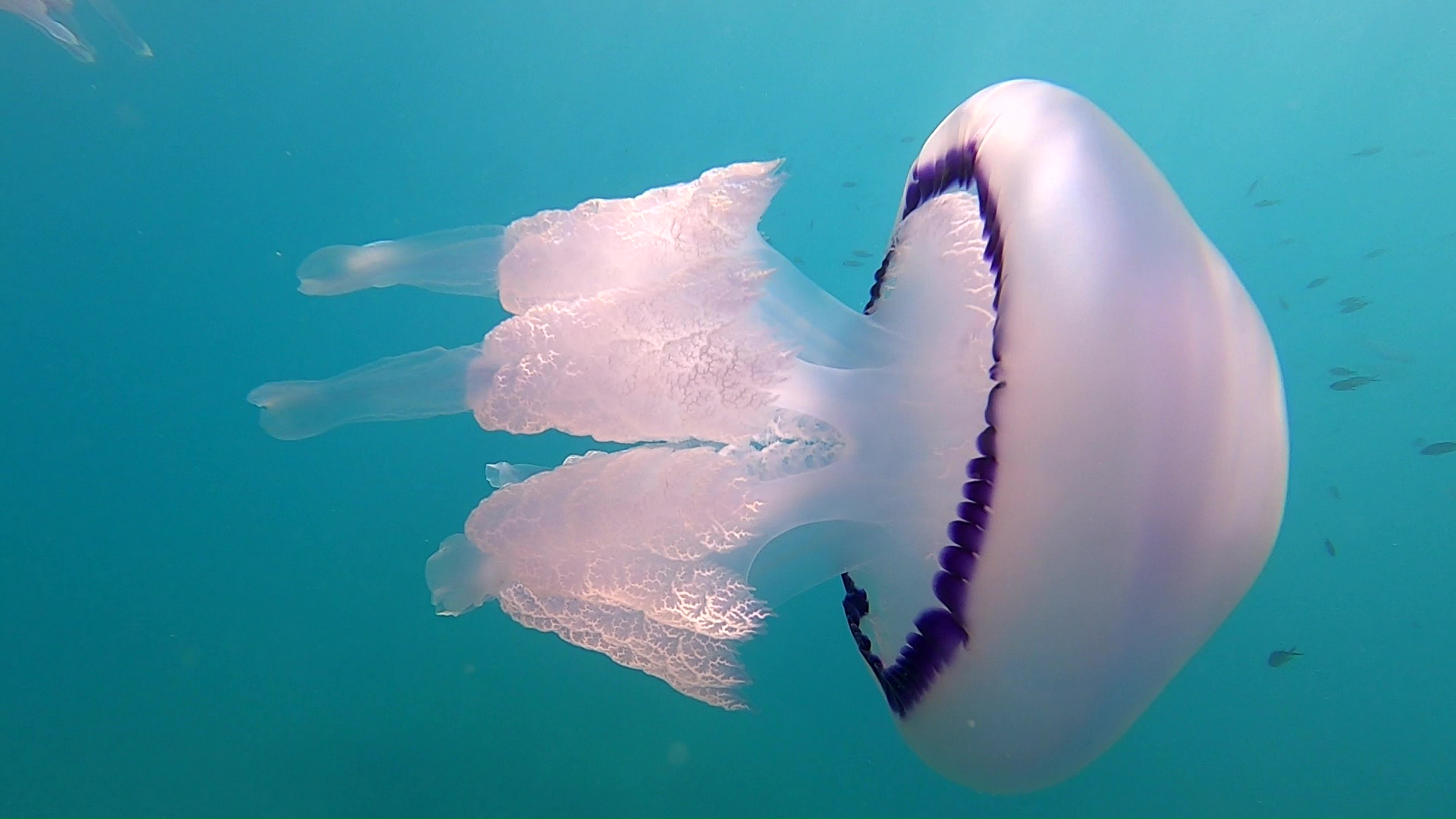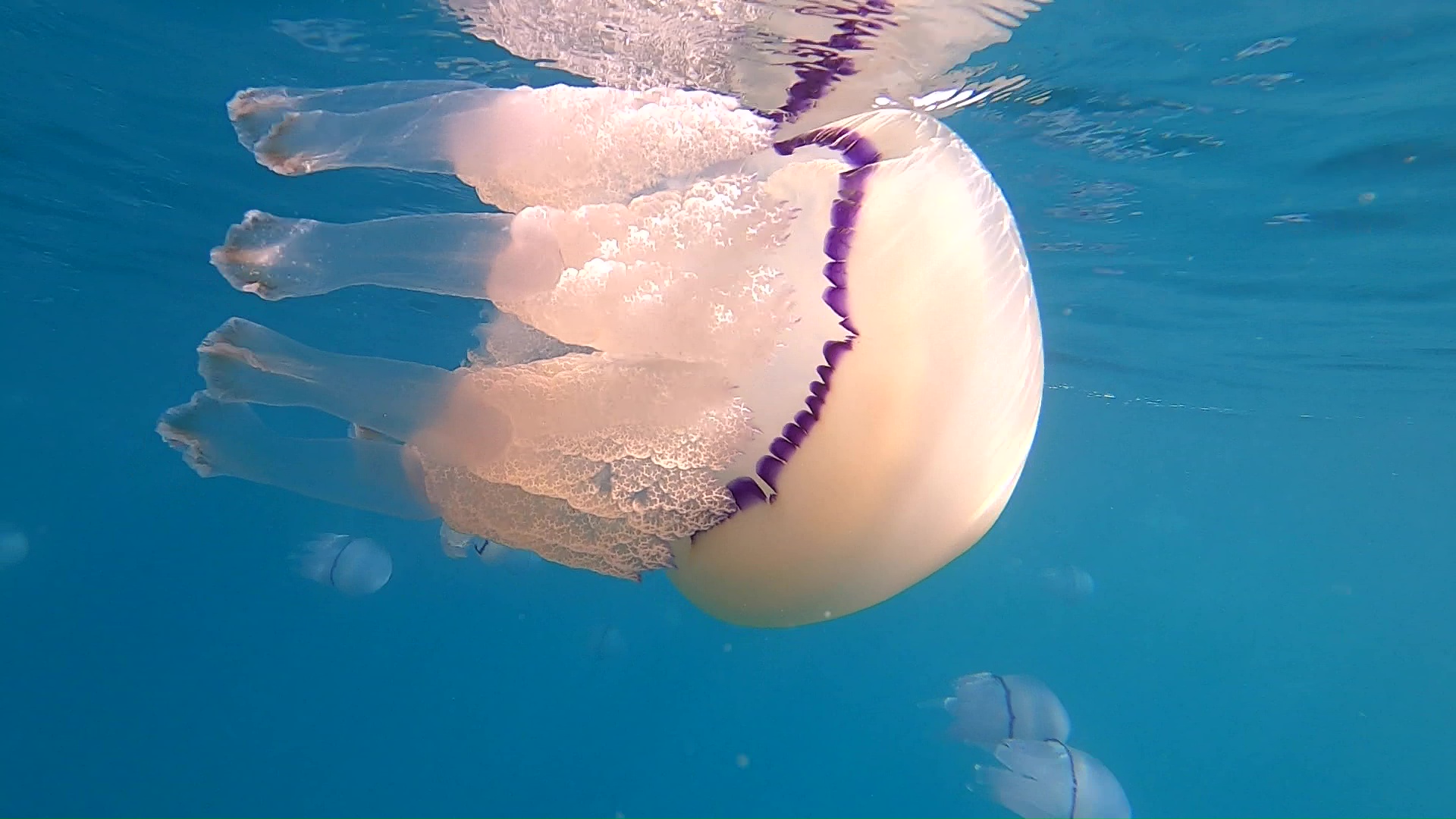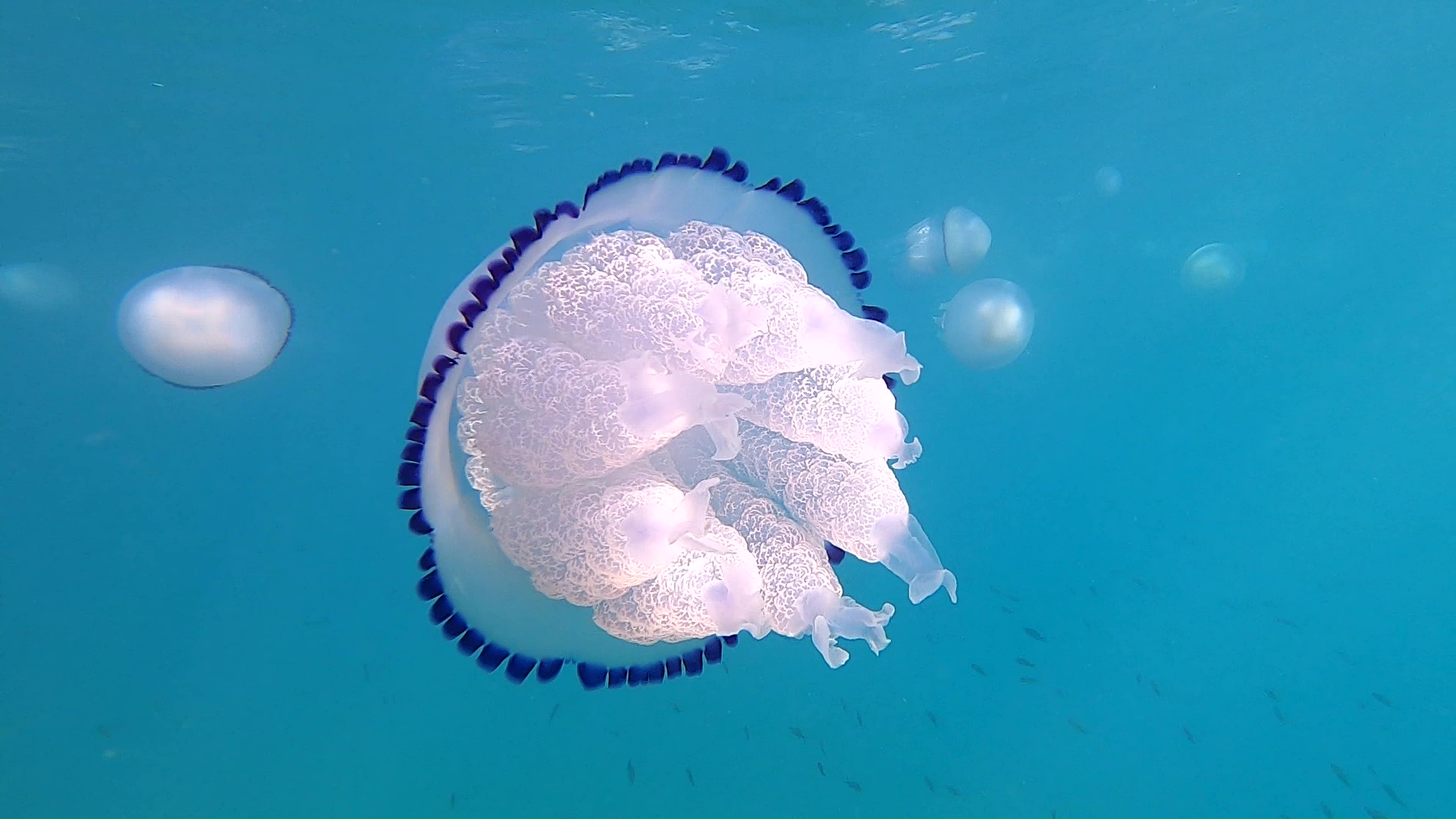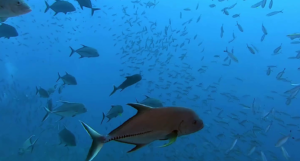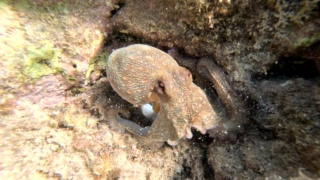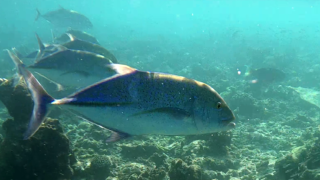Rhizostoma pulmo (Barrel Jellyfish) is the largest jellyfish in the Mediterranean Sea, and is also one of the most common and easiest to encounter. Every summer we manage to film some specimens, in this case we found ourselves in front of a real herd of a hundred jellyfish, a rather rare event in recent years. Collect plastic and let jellyfish live intotheblue.it Rhizostoma pulmo Barrel Jellyfish Medusa Polmone di mare intotheblue.it
This jellyfish is absolutely harmless, and we will never tire of saying it, avoid taking them out of the water !!! they are jellyfish that can cause slight skin irritation if you come into contact with the tentacles but they are irritations that resolve within a few minutes. Collect plastic and let jellyfish live intotheblue.it
Instead, they are an important bioindicator and above all a source of food for dolphins, cetaceans, whales, and many other fish, so let’s leave them in their natural environment and avoid beaching them as is happening these days and like all summers. In the various social networks we are witnessing a real capture and hunting campaign by ignorant and exhibitionist people who believe themselves to be the saviors of bathers so we all try to avoid spreading the usual fake news and let’s rather trust marine biologists and the numerous attempts of correct information on these splendid jellyfish.
In the video we were simply equipped with a mask, snorkel and camera, without any wetsuit and protection and we came out of the water quietly alive and without any mortal wound, so if you are afraid of these jellyfish stay under the umbrella to do something else, and rather be careful with your plastic because we are at the paradox of being heroes by capturing these jellyfish and then leaving plastic bags on our beaches which, once in the sea, will be mistaken for sea lungs by fish, dolphins, cetaceans and sea turtles. So if you really want to be a hero, collect the plastic and let the jellyfish live !!!
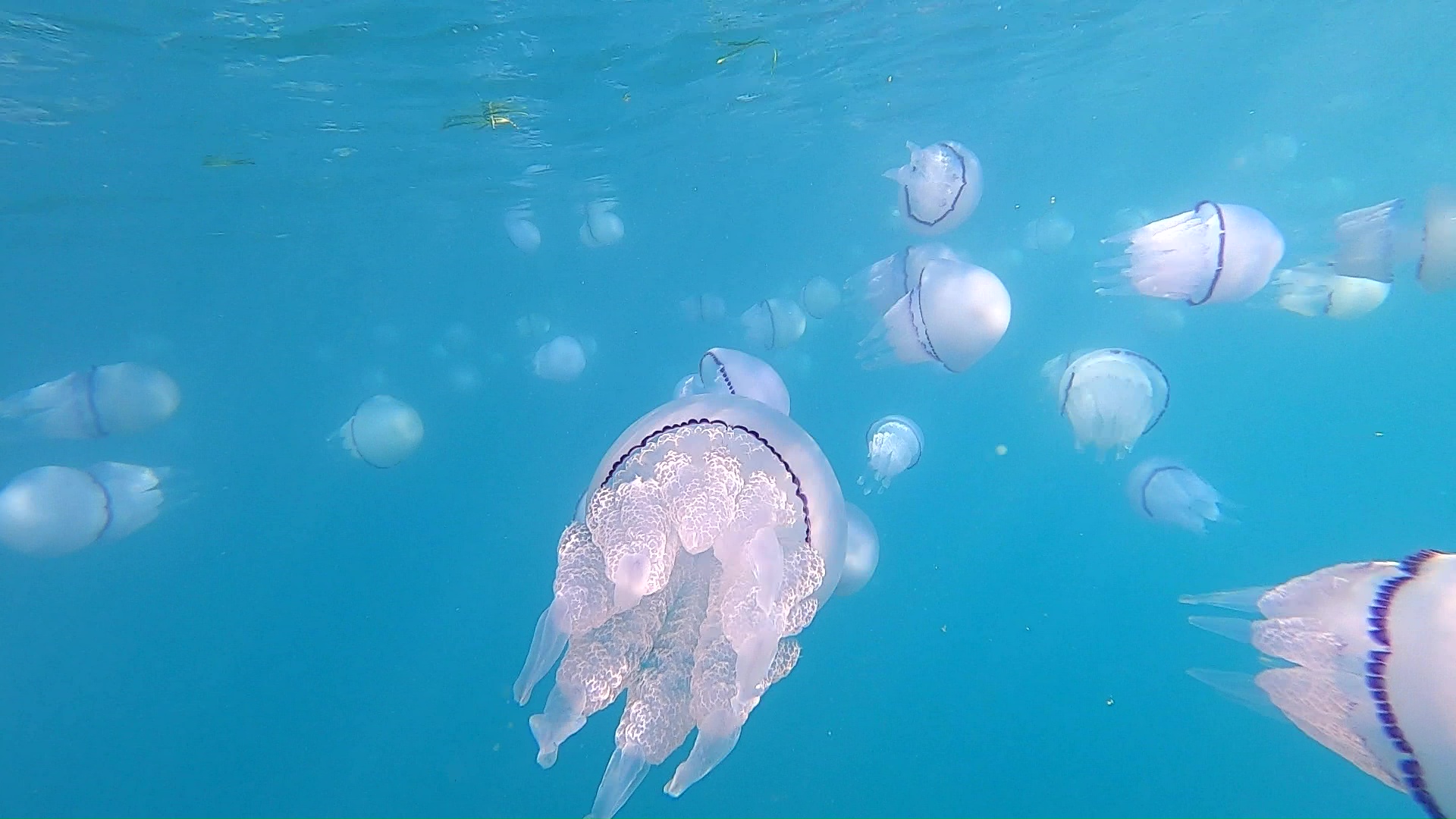
Rhizostoma pulmo Barrel Jellyfish Medusa Polmone di mare intotheblue.it-2022-07-07 – Collect plastic and let jellyfish live intotheblue.it
The Barrel Jellyfish (Rhizostoma pulmo Macri, 1778) is one of the scifomedusa Rhizostomatidae family. Polmone di mare Rhizostoma pulmo scifomedusa intotheblue.it
Distribution and habitat
Detail of the handlebar and the tentacles of a Barrel Jellyfish. It is a pelagic species widespread in the ocean Eastern Atlantic, the Mediterranean Sea (frequently along the Adriatic and Ionian coast to coast, especially in late summer and early-autumn periods) and the Black Sea.
Description
This jellyfish has a hemispherical shaped hat opalescent but tending to transparent, with blue-purple edges frayed. Below the hat the body is called the handlebar and is composed of 8 prolongations of curled and lumpy white-transparent fabric, from which depart 8 elongated tentacles, frayed and semitransparent. Young specimens tend to have a more transparent color, adults are much more opalescent. The common name of sea lung is due to the typical throbbing movement made by the jellyfish to move. The dimensions are worthy of note: being able to reach the 50-60 cm in diameter and 10 kg in weight, is the largest jellyfish in the Mediterranean.
No hazard The species does not cause serious consequences, its tentacles usually are not stinging posed a serious danger to humans. Only on sensitive people, the contact can cause irritation which disappear spontaneously in a short time but still leaving an annoying itching or pain.
In water releases some stinging substance or toxin that causes small itchy and mild burning abrasions. The umbel, notoriously devoid of cnidocysts, it can still irritate sensitive parts such as the mouth (especially the lips) and nose. This is due to the release of irritants in the area immediately around the jellyfish, for defensive purposes. Irritations like that can cause swelling and numbness, but cured in a matter of hours.
Gallery
 English
English Italiano
Italiano
